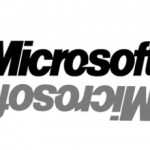 San Francisco — Struggling to ramp up its revenue and seize its share of local advertising, Time Warner Inc.’s AOL unit on Thursday went on a shopping spree under the aegis of new CEO Tim Armstrong, and surprisingly enough the company has acquired two local online media companies Patch Media Corp and hipster-oriented events listing site Going.com, as part of a broader strategy to build the company’s position in the relatively fast-growing local online advertising market.
San Francisco — Struggling to ramp up its revenue and seize its share of local advertising, Time Warner Inc.’s AOL unit on Thursday went on a shopping spree under the aegis of new CEO Tim Armstrong, and surprisingly enough the company has acquired two local online media companies Patch Media Corp and hipster-oriented events listing site Going.com, as part of a broader strategy to build the company’s position in the relatively fast-growing local online advertising market.
AOL, in a statement, confirmed the acquisition of New York-based Patch Media Corp., a provider of local news and information platform for local towns and communities, and Boston-based Going Inc., a platform for users to share information about events in major cities.
Patch is a local news platform catering smaller towns and Going is a local platform helping people to find and share information about things to do in a number of cites.
“Local remains one of the most disaggregated experiences on the web today — there is a lot of information out there but simply no way for consumers to find it quickly and easily,” said Tim Armstrong, AOL’s chairman and CEO.
“It is a space that is prime for innovation and an area where AOL has a significant audience and a valuable mapping service in MapQuest,” Armstrong said.
“Moving forward, local will be a core area of focus and investment for AOL,” Armstrong added. “The acquisitions of Patch and Going will help us build out our local network further.”
The acquisitions come as Time Warner, which is considering to split off AOL before the year end into an independent company, said that the moves will extend its network of local services, which it said currently reaches more than 54 million unique visitors a month.
Armstrong, who joined the company in April, is since busy on putting together a new structure and strategy, in which local content is one major push.
Financial terms of the deals were not disclosed. However, the acquisitions are priced at less than $10 million each, according to a person familiar with the situation.
The acquisition of Patch is not too much of a surprise. Armstrong founded and was an early investor in Patch while at his former gig as Google sales chief. Armstrong, in a memo to AOL employees informed his attachment and relieved himself from the acquisition process. He also said he stood to make a profit on the sale of Patch but decided to give up that and just collect his seed capital in AOL shares when it separates from Time Warner. Armstrong’s investment is valued at less than $5 million, according to the person familiar with the situation.
Patch.com is currently available in five local communities in the United States and offers a model for local news on the Web and plans to have launched in a dozen cities by the end of 2009.
Going.com has been around since 2006 and offers information for young people about what is going on in major US cities such as New York, Los Angeles, Chicago, Miami and Boston.
“By joining with AOL, we have the opportunity to greatly expand the reach of our platform to more cities both in the US and around the world,” said Going chief executive Evan Schumacher.
AOL has been intensifying its efforts in publishing premium online content, expanding its advertising business, focusing on communications with its email and instant messaging services and creating a ventures business group to house some of its acquisitions, such as the social networking site Bebo that it acquired last year.
“Our vision is not just about optimizing what we have–it is about overhauling how we approach this space, drawing on our legacy of connecting communities,” Armstrong wrote in his note. “It is about taking one of the most disaggregated experiences on the Web today and making it truly quick and easy for consumers to find the local information they need.”
AOL is currently the number four gateway to the Web after Google, Microsoft sites and Yahoo! and has been trying to refashion itself recently as a popular one-stop portal.


